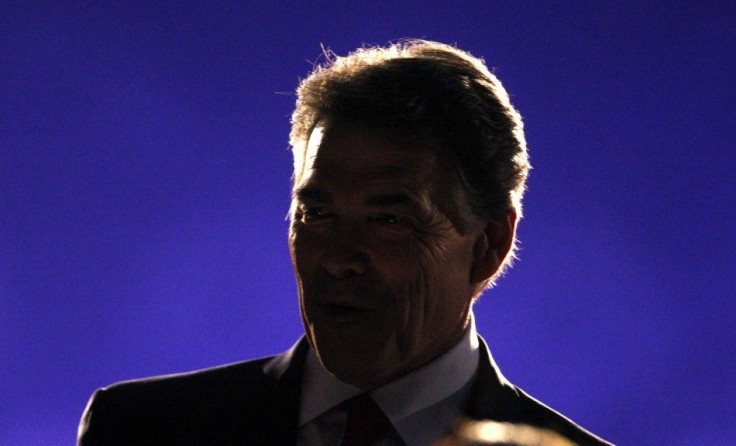Anatomy of 'Oops': The Science Behind Rick Perry's Brain Freeze

We've all had it happen. Your teacher, treacherous as ever, calls upon you to recite a list. Or that punchy finale to your presentation hits a dead stop. Take your pick... the presidents, the Commandments, the Beatles, the profit outlook... and you slog your way dutifully through until -- nothing. Absolutely blank. You panic, blink, nervously laugh. Anguish sets in, and you feel your mind literally wretch itself for one tiny chunk of information that was seemingly sucked into a mental abyss, never to return.
For 53 agonizing seconds, viewers of Wednesday's GOP debate in Michigan watch Texas Gov. Rick Perry succumb to the all-too-human flaw of commonly called a brain freeze. It's a deceptive moment. Practiced public speakers, and especially future presidents, are not publically prone to these mental misfires. But such notions are misguided. And try as some late night talkshow hosts might, the truth is Perry's brain is no different from anyone else's when it comes to the ability to inconveniently forget.
Neuroscientists: We've All Been There
Perry's Oops moment, according to neuroscientists, is one we all share.
The kind of problem that Mr. Perry experienced, I see it as an unfortunate or embarrassing thing for him, but it's not abnormal, said Dr. Jason Brandt, a professor of Psychiatry and Neurology at John's Hopkins Medical.
In fact, Perry's lapse is more commonly embodied in the Where are my keys? moment, or having to run back home for your wallet.
The brain, according to Brandt, has a memory system of interconnected nodes, more than free-standing facts, mixing together in a messy bunch.
When you're preparing for an interview, this guy is carrying in his mind and in his consciousness so much information, the potential for interference and temporary blockages is phenomenal, Brandt said. When people have that excess arousal, then the problem becomes insurmountable.
Excitement Made Block Worse
Therein may the problem. Because Perry's mistake is amplified. Just slightly forgetting, he stumbles, and seeks, and his heightened arousal only pushes the information back farther. Then adrenaline, a nervousness. One could argue the nation witnessed Perry navigate Kubler-Ross's Five Stages of Grief in 53 seconds.
Under stressful situations, our memory retrieval processes begin to falter, said Columbia University Professor Lisa Son in an email exchange. It's that classic 'choke' that you see in students all the time when they take exams.
To combat the issue, Son recommends her students be a bit nervous as they study, releasing a dose of cortisol (the stress hormone), which leads to better memory. Stress too much though, and your brain rejects the memories -- a common symptom of those suffering from post traumatic stress disorder.
The phenomena of the actual block? Brandt said that has yet to be explained.
Yale Professor Dr. Amy Arnsten has done some order of research on the brain freeze, with an article of the findings coming in the next couple of weeks. Her work on the prefrontal cortex has explored some of memory's stranger quirks.
When you feel out of control, there are a series of chemical events in the brain that open ion channels near synapses in the prefrontal cortex, which temporarily weakens those synapses causing the prefrontal neuronal networks to disconnect, Arnsten said in an email exchange. The cells stop firing, and your mind goes blank.
There are, of course, ways Perry could have inoculated himself. Mastery of a given subject helps. As does a propensity for public speaking. Elected officials tend to have a knack for both, with few exceptions, which is why moments like Perry's are rare on the national stage.
People who are masters about the questions they are dealing with can field the questions with greater ease, Brandt said. People who go into politics are good at this. By and large, they have exceptional communication skills.
One does not get that far in a presidential race without the skills. (Or do they?)
For the general public, the novelty of Perry's gaffe has many talking for days later -- just check the date this was published. But for neuroscientists, it was no big deal.
I've been following the campaign pretty closely, but as someone who studies and [researches] cognitive loss, I was not impressed, Brandt said. I said, 'Oh God the poor guy.'
© Copyright IBTimes 2024. All rights reserved.





















